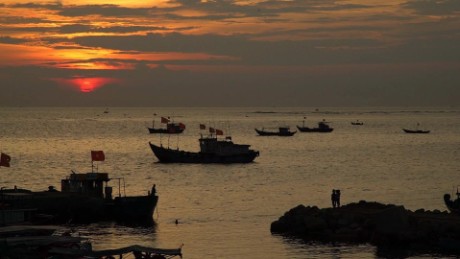Duterte is native, what Spanish would call indio. They are anti-colonialist, ie anti-American.
Yvrch is right here: anti-colonialism plays a big part in Duterte's version of nationalism.
... one of the “injustices” that presumptive President-elect Rodrigo Duterte wants to correct during his administration is how Filipinos see the Bisaya hero Lapu-Lapu. Duterte told reporters in a press briefing that he will make Lapu-Lapu “a proper hero” for being the first to fight the Spanish forces who landed on the island of Cebu centuries ago.
Duterte most likely interprets US actions as being neo-colonialist in nature, hence quotes like this from below, which is consistent with statements made recently - this is also part of the struggle by anti-colonialist Filipinos against the Manila elite (Aquino, Roxas) who generally don't mind acceding to the wishes of the US:
Last year I asked a ranking Pentagon planner what America would do about China’s ship-killer missiles, which reportedly can sink an aircraft carrier a couple of hundred miles from its coast. If China wants to deny the American navy access to the South China Sea, the official replied, we can do the same: persuade Japan to manufacture surface-to-ship missiles and station them in the Philippines.
It didn’t occur to Washington that the Philippines might not want to take on China. The country’s president-elect Rodrigo Duterte explained last year (as reported in the Wall Street Journal), “America would never die for us. If America cared, it would have sent its aircraft carriers and missile frigates the moment China started reclaiming land in contested territory, but no such thing happened … America is afraid to go to war. We’re better off making friends with China.”
It isn’t only the Philippines who see the obvious. China of 40 countries for its position that territorial claims to the South China Sea should be resolved by direct negotiations between individual countries, rather than before a United Nations tribunal constituted under the UN Convention on Law of the Seas, as Washington wants. A joint statement by the foreign ministers of China, Russia and India after a meeting in Moscow last month supported China’s position.






